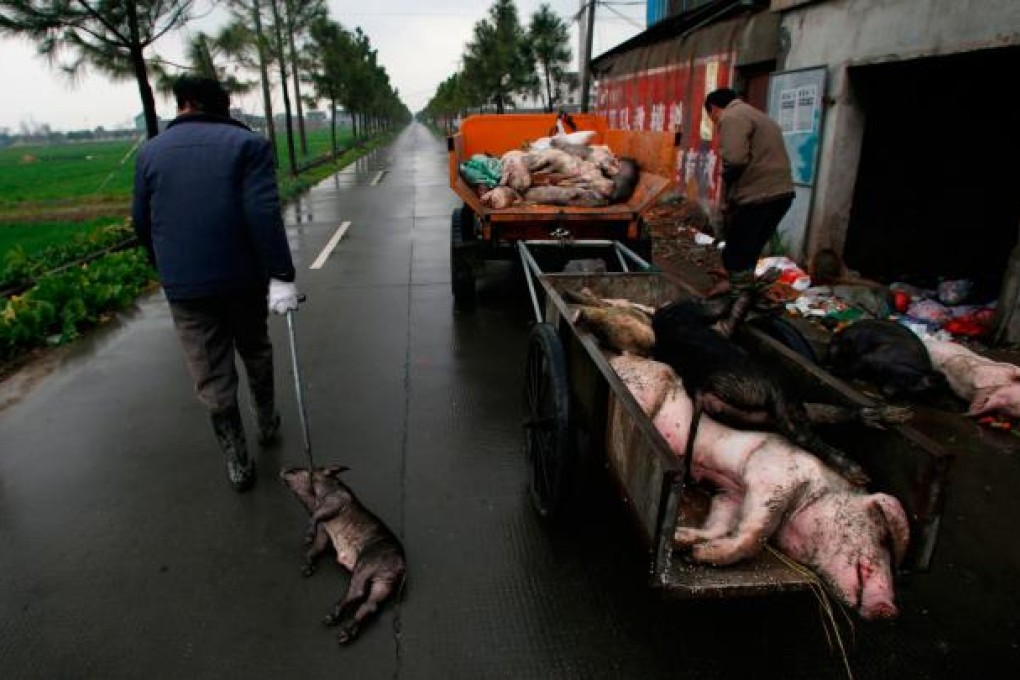Illegal Zhejiang pork already in food chain
Just when the scandal surrounding the dumping of dead pigs into a primary drinking water source seemed to be drawing to a close, state-run television station has revealed that illegally processed pigs have been making their way to dining tables for years.

Just when the scandal surrounding the dumping of dead pigs into a primary drinking water source seemed to be drawing to a close, state-run television station has revealed that illegally processed pigs have been making their way to dining tables for years.
Illegal dealers in Zhejiang’s Jiaxing city had purchased dead pigs from breeders and resold them to markets for years, Chinese Central Television’s News Investigation programme reported on Saturday.
Breeders are required by law to send dead animals that have died of disease or from natural causes to undergo “non-hazardous treatment”, and they are prohibited from selling them to butchers.
Pan Huimin, Jiaxing resident who remains under custody for suspicion of dealing in dead pigs, told CCTV that there was “100 per cent” correlation between his arrest and the dead pigs dumping incident. Local farmers dumped dead pigs in rivers “because nobody buys [them] anymore,” Pan said.
Illegal dealers like Pan bought dead pigs, which account for as much as 10 per cent of the total number of pigs, and processed them into different meat products, which were resold on the black market, CCTV said.
Dead pigs became a hot topic in China and generated world-wide attention after more than 16,000 of them were found floating in a river flowing through Shanghai earlier this month, sparking concerns over the safety of the region’s drinking water and public anger toward the government’s handling of the issue.